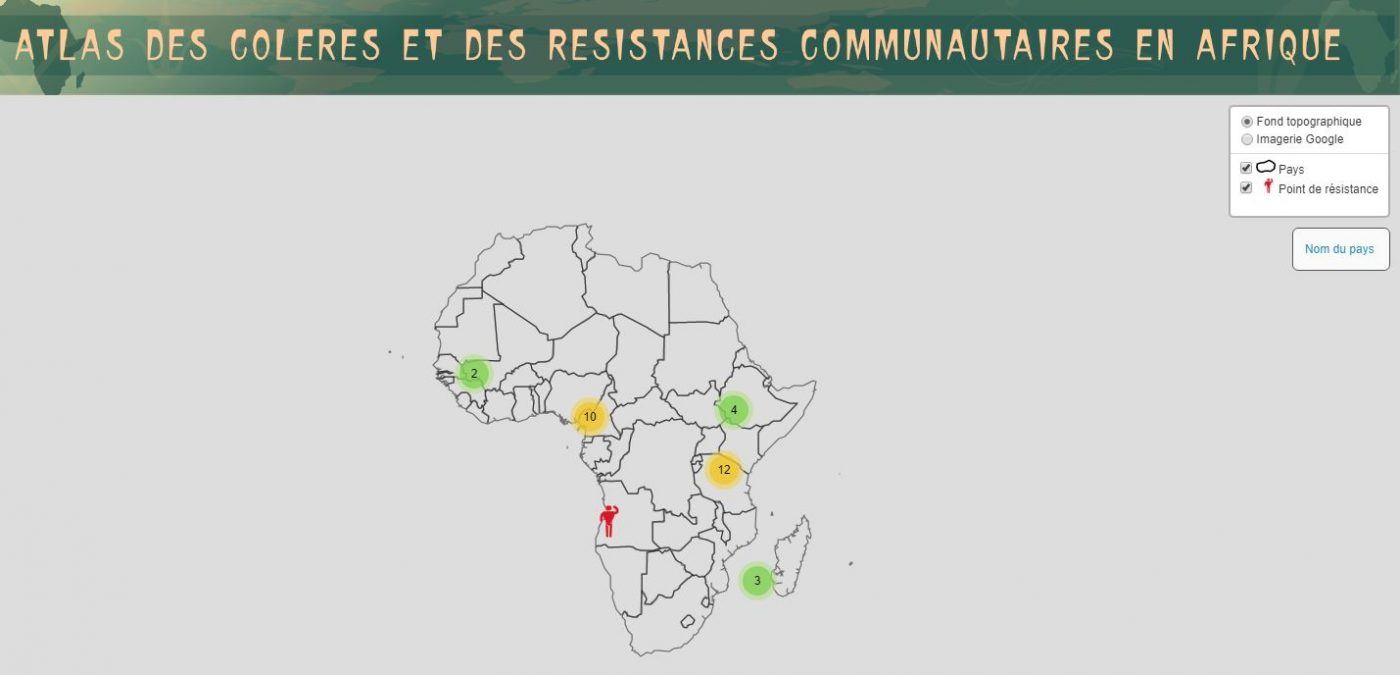June 29, 2017
The Center for Environmental Development (CED) in Cameroon, a participant in Land Rights Now, has launched an Atlas of Community Anger and Resistance, which maps land rights conflicts that local communities and Indigenous People face in Cameroon and across the continent of Africa.
Rural lands in Africa are particularly vulnerable to expropriation and land grabbing, as 90% of the land is not registered. And not only that but just 0.1% of the rural land is recognized as owned or controlled by local communities (CED Cameroon), despite the vital role that these communities play in producing food and fighting climate change. The global land rush for investments in the agro-industry and the forestry and mining sectors in Africa has lead to an increase in the competition for land . As a result, most countries across Africa are experiencing increasing land rights conflicts.
“Cameroon has been experiencing land tenure problems, just as nearly 200 other countries in the world. Between disenchantment, land grabbing and other land-related conflicts, Indigenous Peoples and local communities generally fall victim to the abuse of administrative authorities and companies. This platform will be used to list the places where populations resist land grabs of third parties.” – CED Cameroon.
The atlas does not only expose violations and land rights conflicts, but also offers a platform for Indigenous People and local communities to show the world that they are resisting these land rights violations. The aim is to drive decision-makers to become more aware of what is happening on the ground.
One of those cases includes the Esu community in North-West Cameroon, who lost 75% of their communal land to a commercial rancher. As a result, over 200 people have been displaced, and the chemicals from the ranch have contaminated the rivers and drinking water of the villagers. The Esu community has been peacefully resisting, filing a court case against the billionaire rancher to request proof of land ownership. This trial is ongoing as the court continuously postpones the hearings for unclear reasons while at the same time the rancher has filed charges against the community claiming vandalism on his property. Members of the community have also been subject to judicial harassment and protesters have been arrested, tortured and detained. The Esu community continues to resist the land grab. You can read more about the case here.
Cases like these show the importance of exposing land conflicts and points of resistance through the Atlas. Samuel Nguiffo, the executive director of CED explains:
“The purpose of this Atlas is to expose the places where conflicts are recorded, so that solutions can be found. Even if solutions are not systematic, exposing them can have a dissuasive effect.”
Read more about the Atlas here, spread the word and report points of resistance and land conflicts in Africa.



